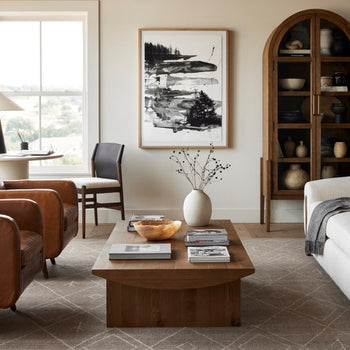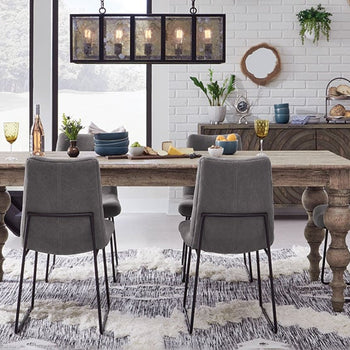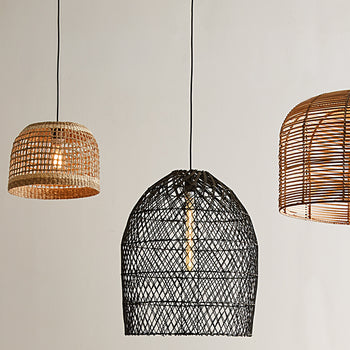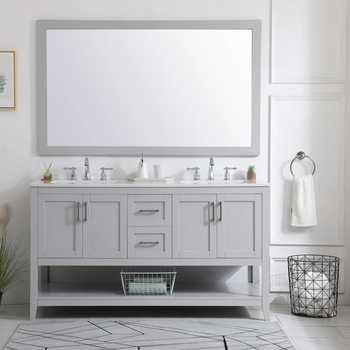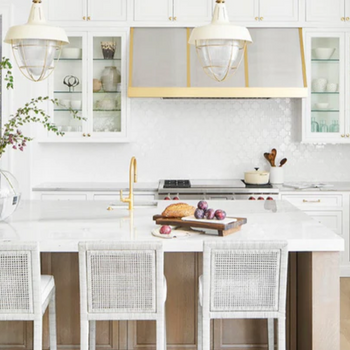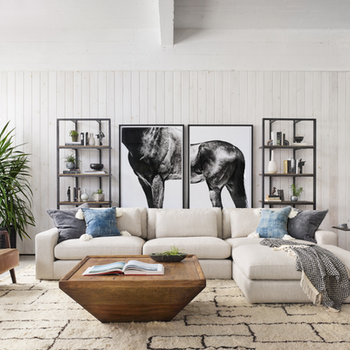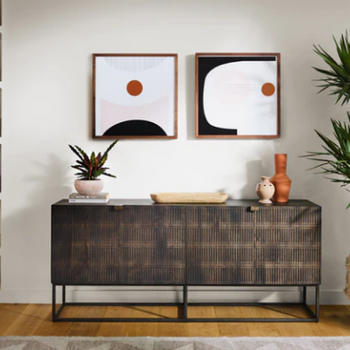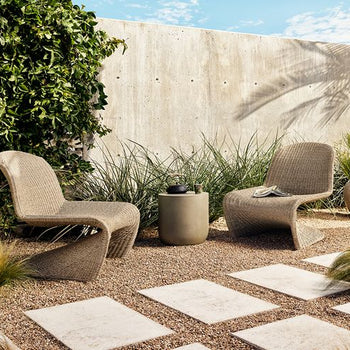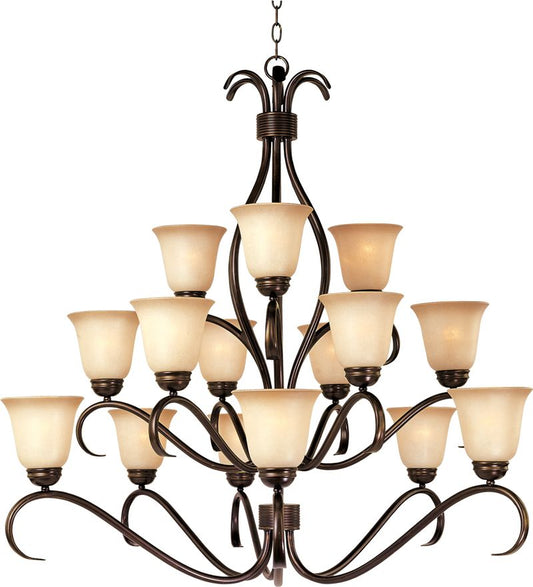
Basix Multi-Tier Chandelier
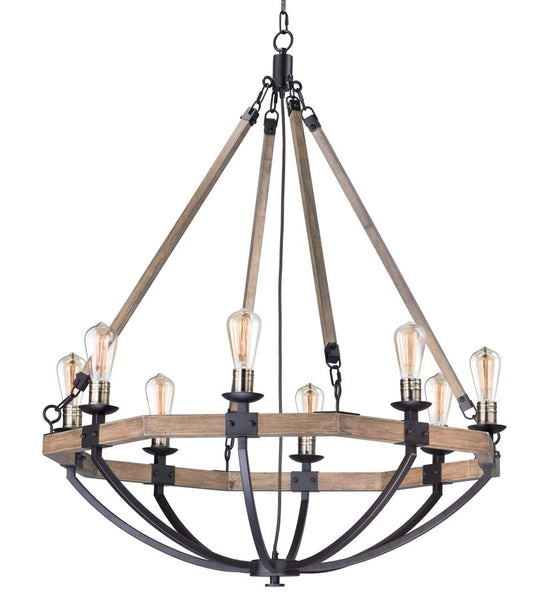
Lodge Chandelier
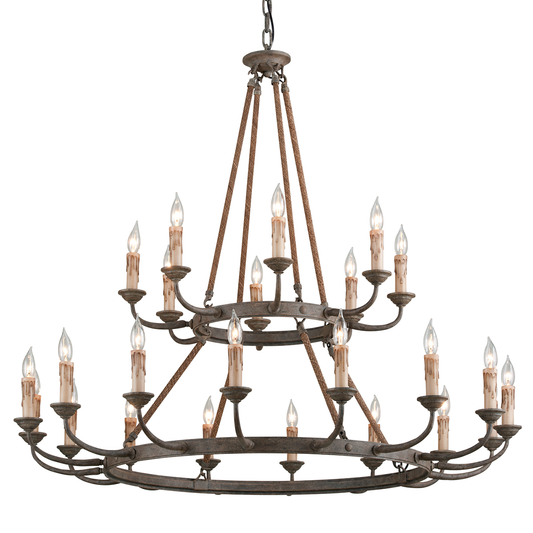
Cyrano Chandelier
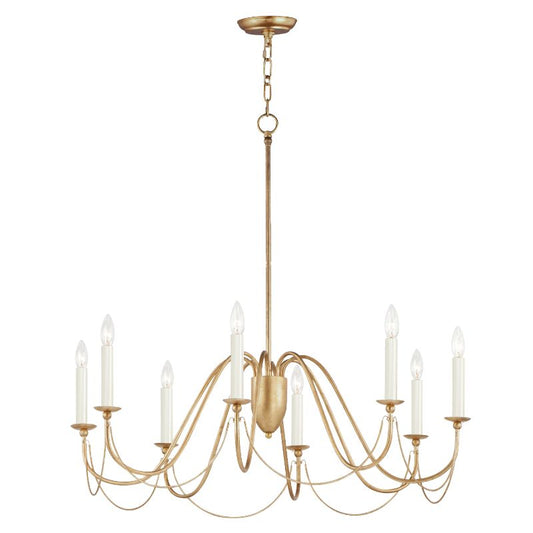
Plumette Eight Chandeliers
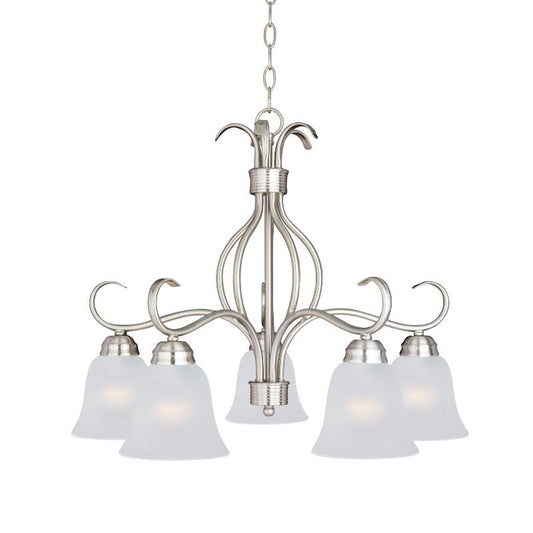
Basix 25" Chandeliers
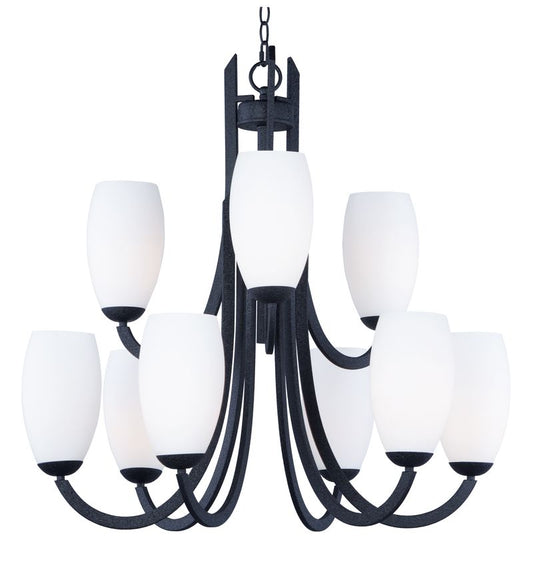
Taylor 31.5" Chandelier
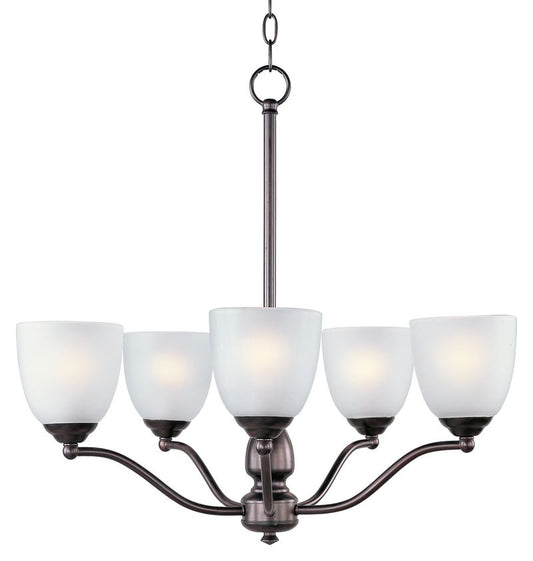
Stefan 25" Single-Tier Chandelier
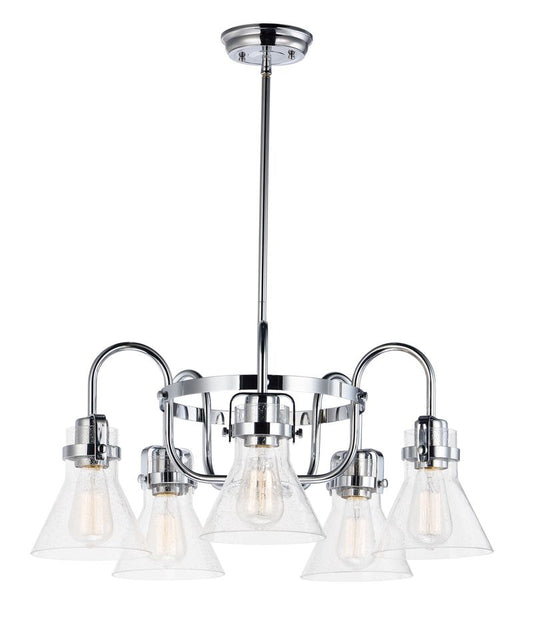
Seafarer 23.75" Chandelier
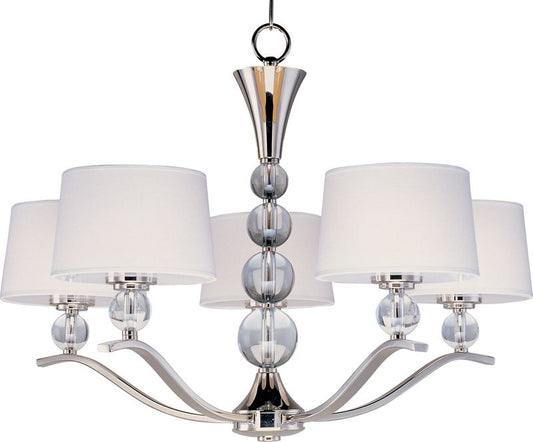
Rondo Single-Tier Chandelier
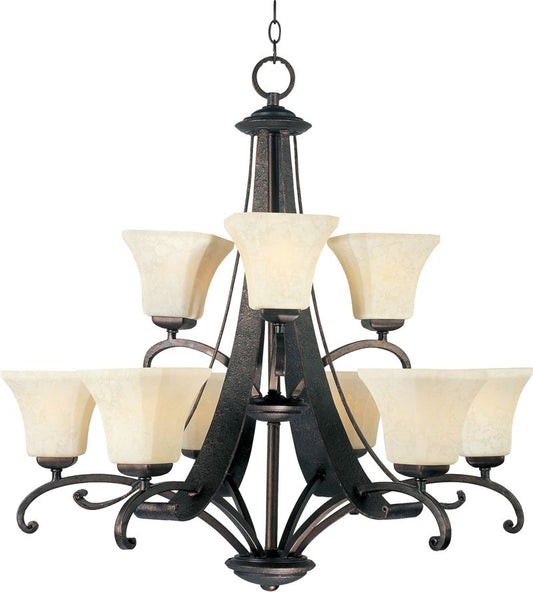
Oak Harbor Chandelier
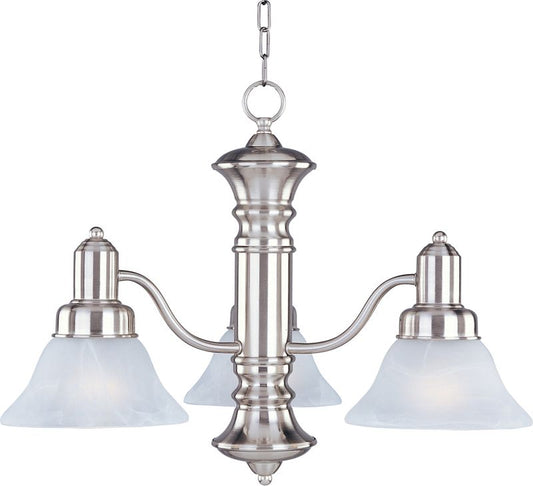
Newburg Down Light Chandelier
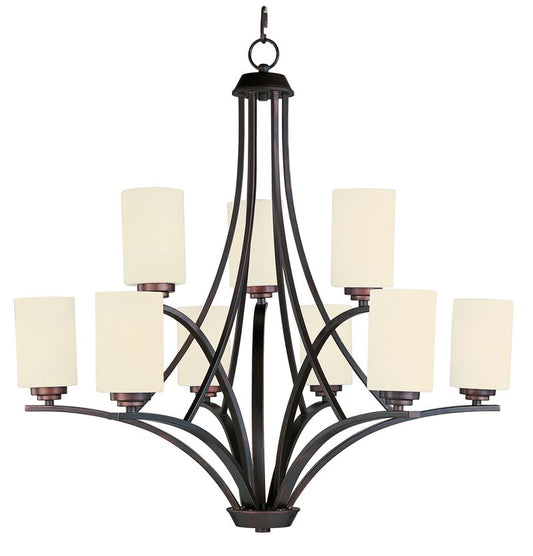
Deven 32" Multi-Tier Chandelier
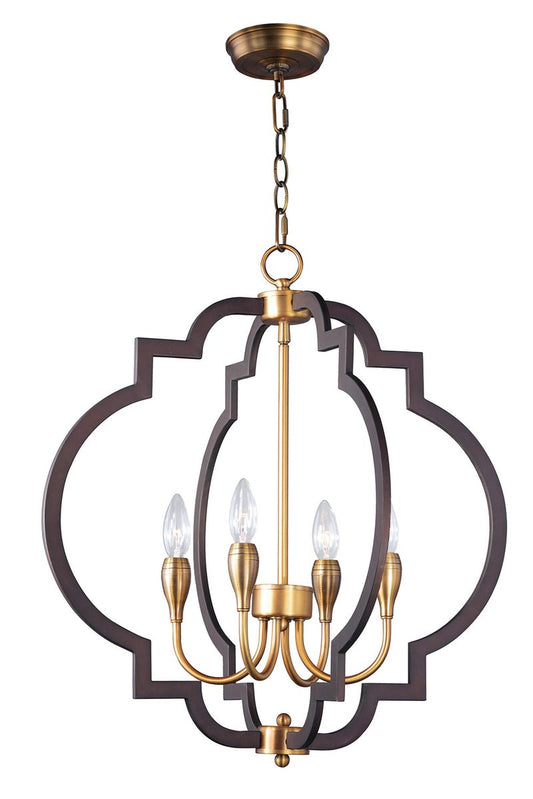
Crest Chandelier
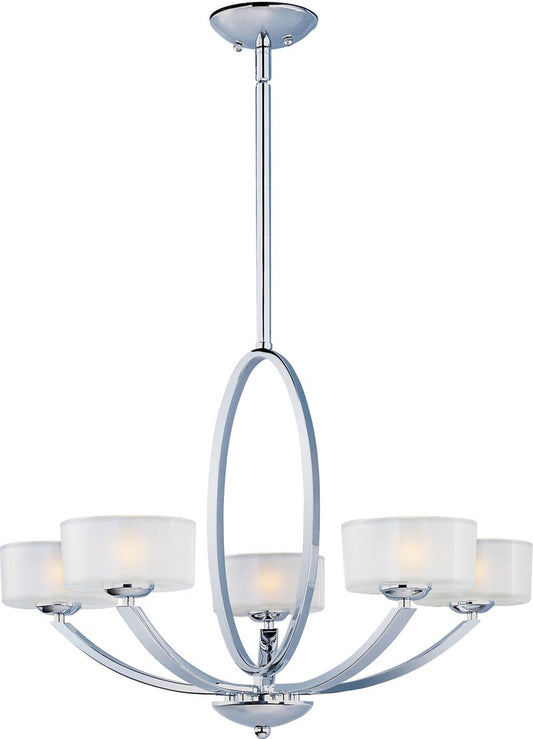
Elle Chandelier
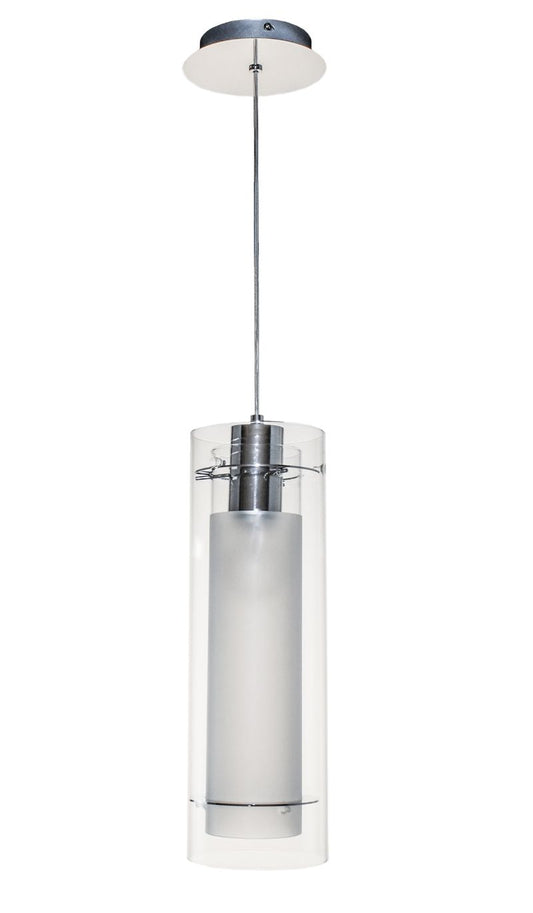
Frost Pendant
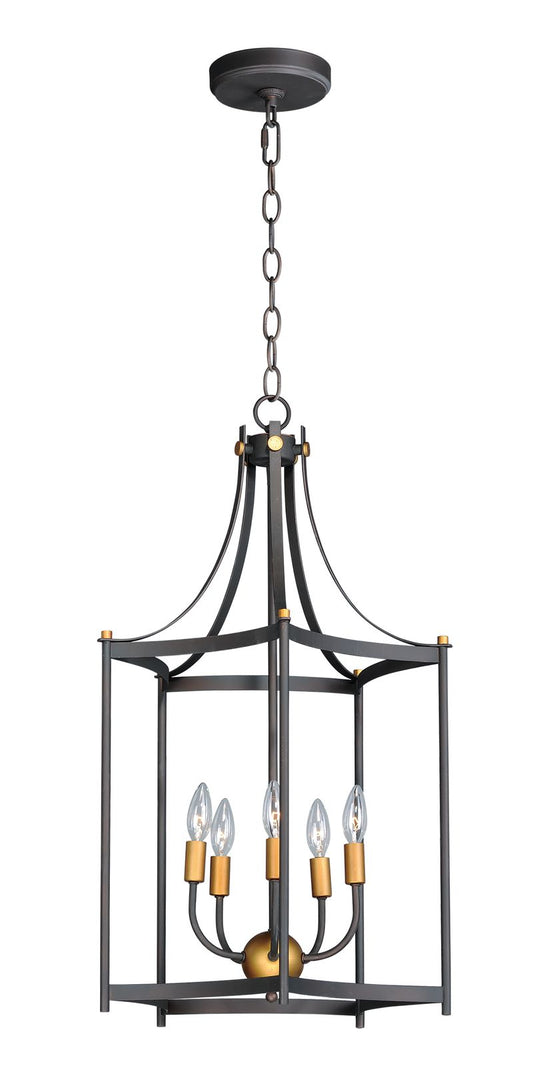
Wellington Entry Foyer Pendant
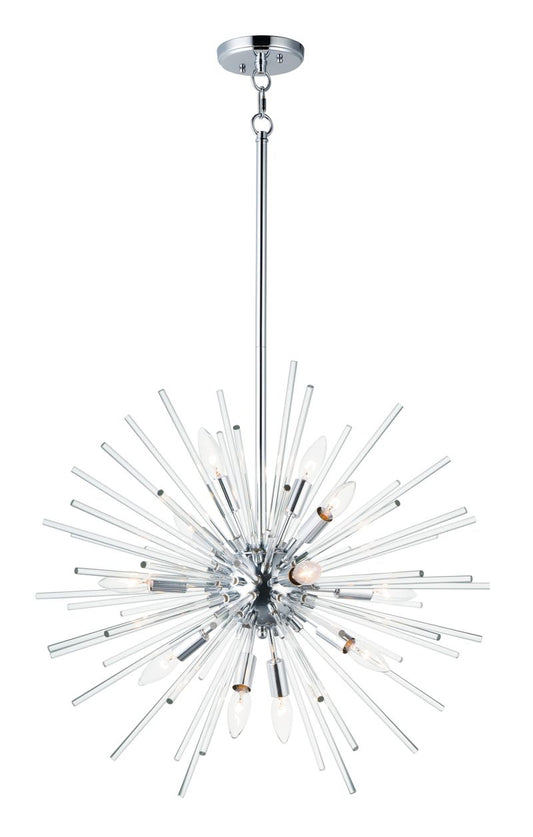
Polaris 12 Light Chandelier
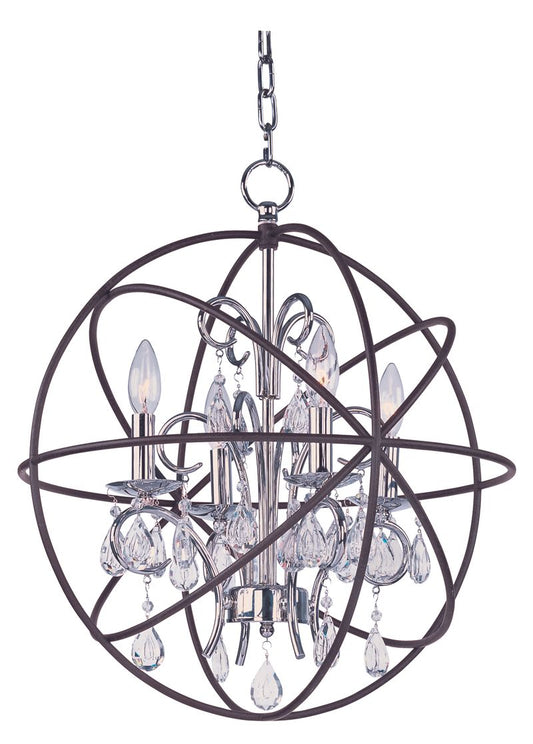
Orbit 19" Single-Tier Chandelier

Magnolia Pendant
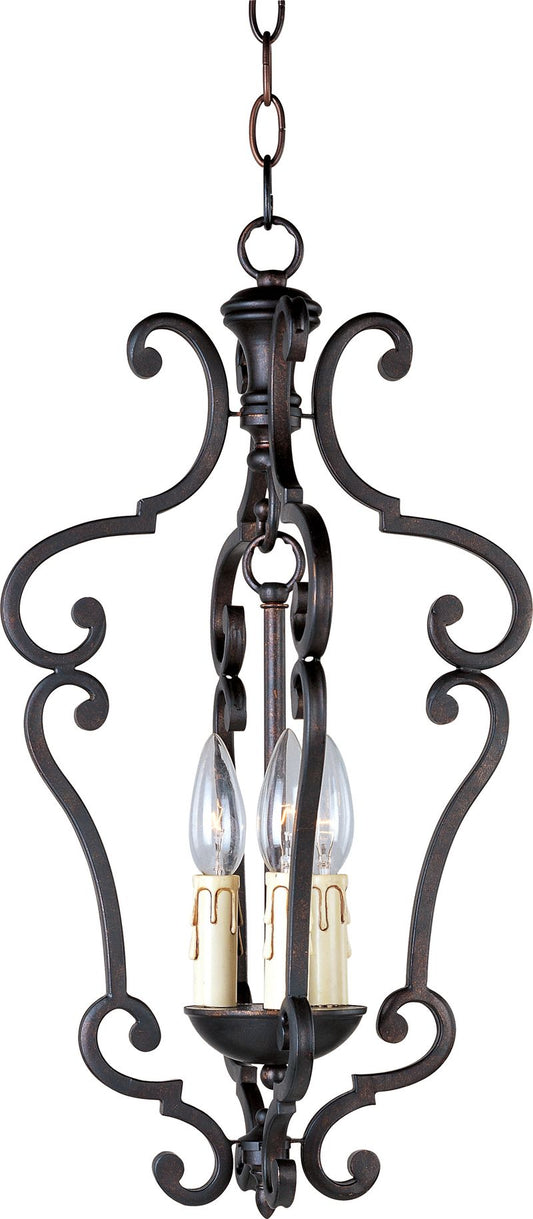
Richmond 11" 3 Light Entry Foyer Pendant in Colonial Umber
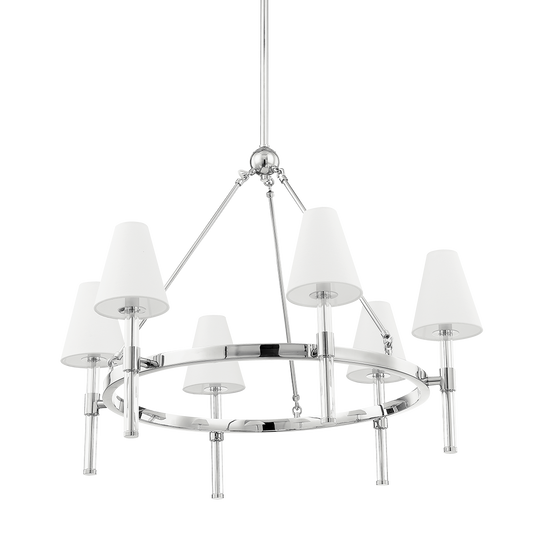
Janelle Chandelier
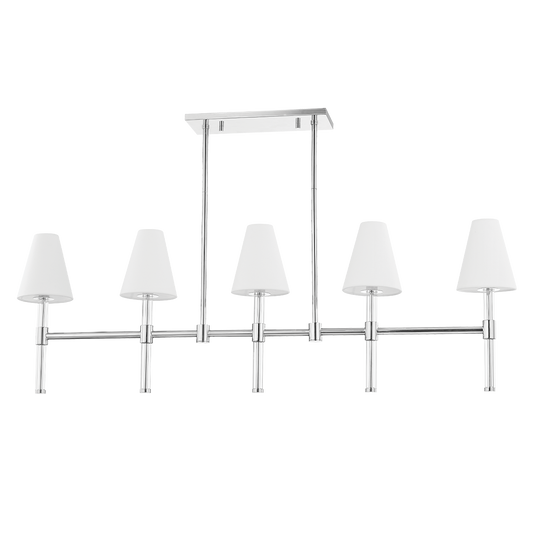
Janelle Island
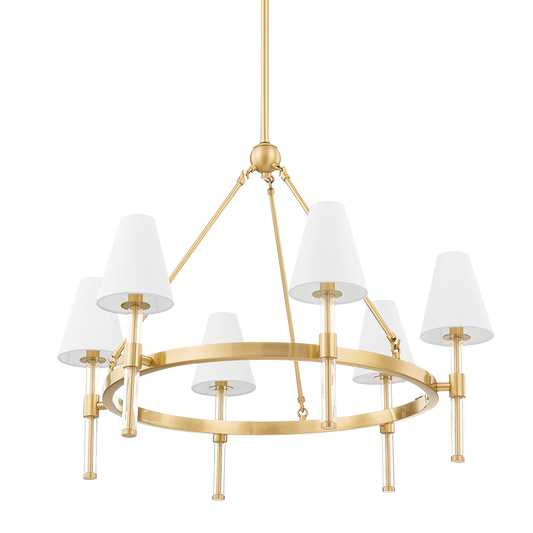
Janelle Chandelier
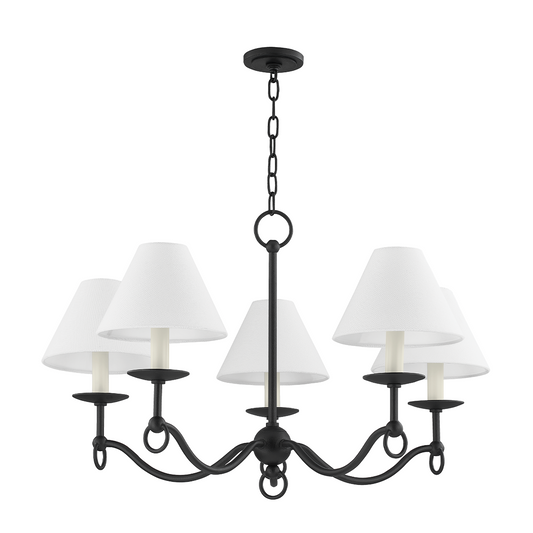
Massi Chandelier
Finding the Perfect Chandelier for You
When you have an open area in need of some decoration, a chandelier is the perfect choice. Entryways, foyers, dining rooms, and living rooms are all excellent areas for chandeliers. Whether you choose an elegant crystal chandelier or a contemporary LED chandelier, your chandelier is the focal point of a room. Choosing the right style is your first step towards finding the perfect chandelier.
Types of Chandelier Styles
- Modern
- Contemporary
- Farmhouse
- Rustic
- Industrial
- Antique
- Crystal
- Art Deco
- LED
- Candle
After landing on a style, determine the size and lighting type. Fortunately, we’ve got you covered with style tips and suggestions.
What is a Chandelier?
In the simplest terms, a chandelier is a large, hanging light fixture with multiple lights extending from a central point. Chandeliers have been around since the middle ages in the dining halls of the wealthy. Those early chandeliers used candles attached to a ring frame that lowered on a rope or chain. Most chandelier designs are largely based on the same concept, utilizing candle-shaped bulbs on a circular frame.
While chandeliers are available in a wide variety of shapes and styles (even outdoor chandeliers), they are typically designed on a frame with arms extending from a central core frame. They often have candle lights, crystal shades, and gold finishes with opulent and intricate details.
If you’re looking for a chandelier, here are other ceiling lights to consider:
- Pendants: A hanging light, like a chandelier, but smaller and typically installed in tandem with other pendants over kitchen islands or dining room tables. Pendant light fixtures are often confused with chandeliers, especially when the size is close to a small chandelier, because they are also highly stylistic.
- Flush Mounts: A ceiling light where the fixture is installed close to the ceiling. Flush mounts often utilize half dome or drum shades with functional lighting meant to illuminate an entire room. A semi-flush mount is a type of in-between light fixture that is close to a flush mount but hangs from a short rod or frame like a pendant.
- Recessed Lights: A ceiling light built into the ceiling, recessed lights are all about flooding an area with light without all the pomp and circumstance of a fixture. In a way, they are the most modern type of lighting fixture. Minimalist to the core.
- Ceiling Fans with Lights: Usually installed in bedrooms or living rooms, this is a ceiling light attached to a fan. While fandeliers combine the austere style of a chandelier with a fan, most ceiling fans with lights are simple, yet functional.
Expanded: Chandelier Light Styles
Chandeliers are perhaps the most stylistic lighting fixtures you can install in your home. Since they are designed as the focal point of a room, chandeliers are often the foundation for a room’s interior design. In other words, you want to draw the eye towards the chandelier, so people notice it. Most importantly, chandeliers support the room’s aesthetic design.
The broad definitions of interior designs styles are sometimes overwhelming, but they don’t have to be. They are merely guidelines to help you find your unique aesthetic – not unlike musical genres. There are many exceptions and a lot of crossover. We’re here help you navigate the relative ambiguity of interior lighting designs so you can find the right look for your home.
Modern Chandelier Lighting
Modern design began over a century ago, though it’s popularity peaked in the 1950’s. It’s often defined by minimalism – simple shapes, functional designs, and common materials. The elegant simplicity of modern design may seem contrary to the “look at me” ethos of a chandelier, but there are plenty of modern chandeliers to fit a minimalist aesthetic.
Modern chandeliers are often boxy with square frames made of iron or other metals with a matte black finish. Globe chandeliers are also common – a simple down rod with branches featuring lights with glass globe shades.
The beauty of a modern chandelier is it’s more functional than a traditional chandelier. Chandeliers are typically decorative, but modern designs inject more functionality into the design. Modern chandeliers provide better lighting than most styles, which tend towards ambience mood lighting.
Contemporary Chandelier Lighting
Contemporary chandeliers are very similar to modern chandeliers. In fact, the terms are so similar and modern aesthetics are often incorporated into contemporary designs, making it very difficult to tell the difference. But there is a difference. While modern styles are rooted in 20th century aesthetics, contemporary styles are more focused on what’s new and exciting in chandelier lighting designs right now.
Often, this means experimental shapes, such as asymmetrical designs, and new technology like integrated LEDs and smart technology. Contemporary chandeliers are all about what’s cutting edge.
Farmhouse Chandelier Lighting
A very popular style, farmhouse designs are all about creating a cozy and warm atmosphere. Widely considered a subset of modern style, farmhouse chandeliers combine the simple elegance of modern design but with familiar shapes and materials. Often, farmhouse-style chandeliers have wood and metal frames with vintage or candle bulbs.
Popular farmhouse chandeliers often feature matte black metal frames with candle bulbs, or oil-rubbed bronze light fixtures with a box or ring frame.
Rustic Chandelier Lighting
A rustic chandelier is similar to farmhouse chandeliers, except with a more weathered look. Instead of a finished wood frame, look for a weathered wood frame. Rather than a matte black metal frame, choose a pitted cast-iron frame without a finish.
A popular rustic chandelier is the antler chandelier where deer, moose, or elk antlers are used to construct the frame. However, while the antler chandelier is often cliché in ski resorts and opulent cabins, it embodies the ethos of a rustic chandelier – the use of raw natural materials.
Industrial Chandelier Lighting
Focusing on minimalist and functional designs, industrial style is another subset of modern interior design. Simple, yet unrefined this style leans into the aesthetics of early 20th century factories – old brick, cement, gray neutral colors, raw steel, matte black iron, and raw metal finishes.
As such, industrial chandelier lighting fixtures look like they belong in a 20th century canning factory or on a merchant ship. Often the frame is made of iron or unfinished wood and the shades are antique glass or iron cages. The bulbs are almost always Edison bulbs, often surrounded by a metal wire frame, with a warm color temperature.
Antique Chandelier Lighting
The term “antique” is a vague term applicable to many styles. Usually, antique refers to something old with a lived-in motif. However, when most people think of antique chandeliers, they’re typically picturing a traditional chandelier from the Victorian era or the Gilded age – eras when over-the-top opulence and excessive decorations were very popular. The frame is often made of polished metals like gold or silver, arms with sweeping curves, decorative flowering, candle bulbs, and opulent glass shades.
Some antique chandeliers evoke the stained-glass styles made popular in the 19th century by Tiffany & Co. – a company that made stained-glass lamps for gilded mansions.
Crystal Chandelier Lighting
Crystal chandeliers gained popularity around the 17th century, back when reflective rock crystals were used to adorn chandeliers. It quickly became the favored style in castles, estates, and ballrooms across Europe. Crystal chandeliers are now the epitome of elegance.
The crystals draped from the light fixtures refract light, creating an ambient light with interesting colors. Often with multiple tiers of crystal waterfalls, crystal chandeliers sparkle and glow.
Art Deco Chandelier Lighting
Beginning after World War I, art deco was an early subset of modern style – a style driven by a developing minimalist ethos and new materials, such as chrome plating, stainless steel, and plastic. However, art deco was still far more decorative than the minimalist styles of the 1950’s.
With art deco chandeliers, you can see the simple elegant lines of a modern style, but with the complicated geometric designs of the Gilded Age. While art deco moved away from opulent carvings and beveling with a focus on simple shapes, those shapes often have a more complicated geometrical intricacy than a modern chandelier.
LED Chandelier Lighting
LED chandeliers aren’t a style, but a type of light worth considering because of its energy efficiency and long life. Most chandeliers use incandescent or xenon light bulbs, but most contemporary chandeliers use integrated LEDs. The reason? Since an LED bulb is very small, it allows for experimental designs. As a result, many contemporary chandeliers don’t resemble chandeliers at all. Many feature eye-catching shapes without any visible bulbs.
Candle Chandelier Lighting
Candles were the first lights used on chandeliers. For centuries, candles were the only light source on a chandelier. As such, the look of a candle perched on a chandelier is so loved, manufacturers have designed electric bulbs to mimic both the look and flicker of a candle.
When gas lighting became popular in the 19th century, shades were incorporated into the chandelier design to soften the bright glare of a gas flame. These shades still have influence in traditional and antique chandelier designs.
How to Choose the Right Size Chandelier
Once you’ve landed on a style, choosing the right size is the next step to finding the perfect chandelier. Choose a chandelier that doesn’t look too big or too small for your space.
For a dining room:
The chandelier should look proportional to the table it’s suspended above, without interfering with the line of sight between people sitting at the table. To achieve this, the width of the chandelier should be about 12 inches narrower than the width of the table and centered over the middle of the table. Experts also suggest making sure the chandelier is at least 4 feet from the walls.
Height is less important than width when choosing a dining room chandelier. However, make sure you don’t have a tall light that prevents seated people from seeing each other. Make sure the bottom of your chandelier is at least 33” above the table.
For a living room or entryway foyer:
To find the right size, choose a chandelier with a height proportional to the height of the ceiling. To do this, count 2” to 3” for every foot of height. So, if you have a vaulted 12-foot foyer, go with a 24” to 36” tall chandelier. To find the width, measure the width and length of the room, add the measurements, then convert to inches to find the correct ratio for width. For example, if a room is 10 feet by 15 feet, pick a 25” wide chandelier.
When to Use a Mini-Chandelier
A mini-chandelier has the look and style of a chandelier but is usually less than 20” wide. As such, mini chandeliers are often called pendant chandeliers or chandelier pendants.
Use a mini chandelier when two smaller light fixtures make more sense than a large chandelier. Mini chandeliers are most often used in large dining rooms where a large chandelier isn’t enough lighting or looks out of place along a long table. In these situations, two mini chandeliers placed at opposite ends of the table achieves a more balanced look.
FAQs About Chandeliers
What types of chandeliers are available?
Chandeliers come in wide variety of styles and shapes. From antique traditional baroque chandeliers to contemporary LED chandeliers, there is a type of lighting fixture for everyone’s preferences.
Can you put a chandelier in the living room?
Chandeliers are often used in living rooms, but they look best in living rooms with vaulted ceilings. If your living room has a low ceiling, a flush mount lighting fixture is a better option.
How much do chandeliers cost?
A simple farmhouse chandelier costs anywhere from $100 to $500, but an extravagant crystal chandelier costs thousands of dollars. Our Maxim Lighting 61” Chantilly Multi-Tier chandelier, for example, costs over $8,000.
How do you install a chandelier?
Installing a chandelier is a big task, especially if it’s a large chandelier. We recommend hiring a professional electrician any time you need to connect exposed electrical wires. Not only can you get hurt, but mistakes are a fire hazard.
But if you’re up to the task, here are the steps for installing a chandelier:
- Safety first: Go to the circuit box and turn off the power. Cover the switch with a piece of tape to let people know you’re working. Remove any shades or bulbs from the chandelier to prevent shattering glass.
- Prepare the junction box: The junction box should show three wires: two for power and one for a ground. Use a voltmeter to ensure the wires aren’t electrified by touching the end to the wires. Note the color of the wires.
- Attach Mounting Brackets: Install the new mounting brackets. Most chandeliers come with mounting brackets designed for the weight of the chandelier. Either way, make sure the bracket is sturdy and strong enough to hold the weight.
- Adjust the Length: Before you tighten everything, measure out the length you want for the chandelier. Typically, a screw in the cover plate holds the cord in place. The excess cord tucks into the junction box.
- Attach the Wire: Twist the wires from the cord to the two wires from the junction box, making sure to match the colors, red to red, black to black. Cap the wires with wire nuts making sure there are no excess wires spilling from the nut. Screw the ground wire into the mounting bracket. Let the chandelier hang to make sure it’s at the desired length and adjust as needed.
- Attach the cover: Now you can tighten everything up by reattaching the cover plate over the junction box.
- Add Shades and Bulbs: With the fixture hanging, add the shades and bulbs.
- Turn on the Power: Turn the power back on and turn the light on to see how it looks.
Choose the Best Chandelier for Your Home
Choosing the right chandelier is a big step in the design of a room. As the focal point, a good chandelier sets the tone for the room. So, whether you want an elegant crystal chandelier or a unique contemporary LED chandelier, we have the best chandeliers at Vevano.
If you want personalized help from an expert designer, check out our design service or call us at 855.483.2629. Do you have a question about chandeliers or other ceiling lights? Email us at design@vevano.com to talk with an experte. We’d love to hear from you!

